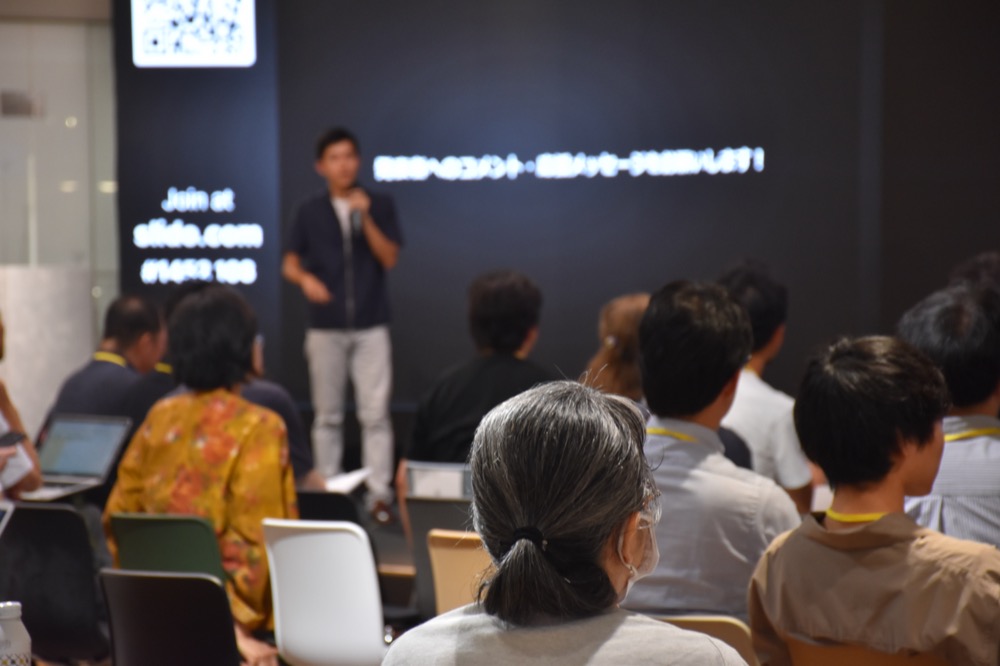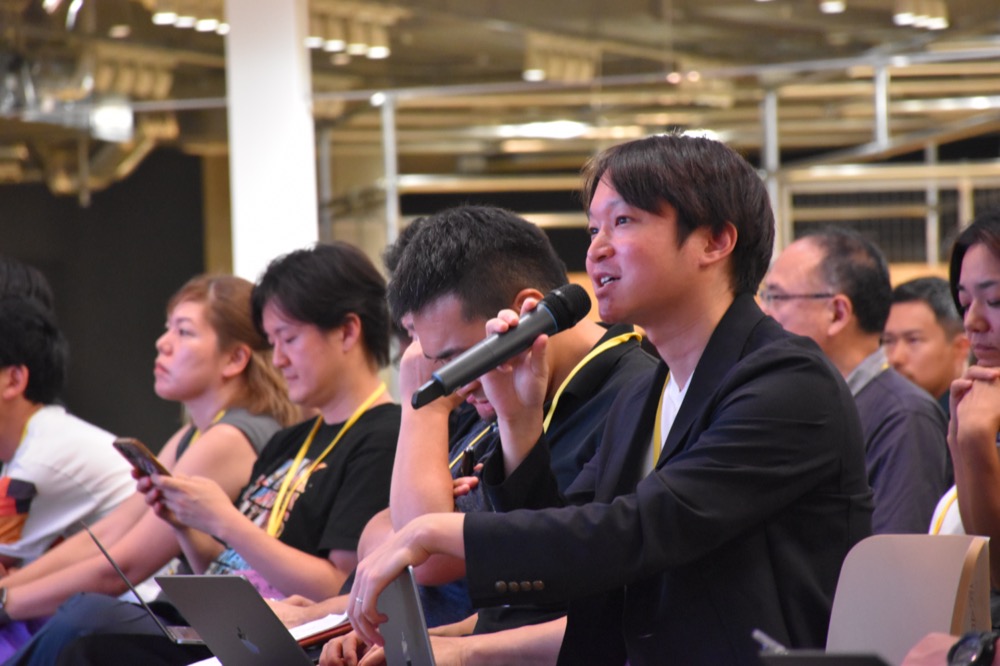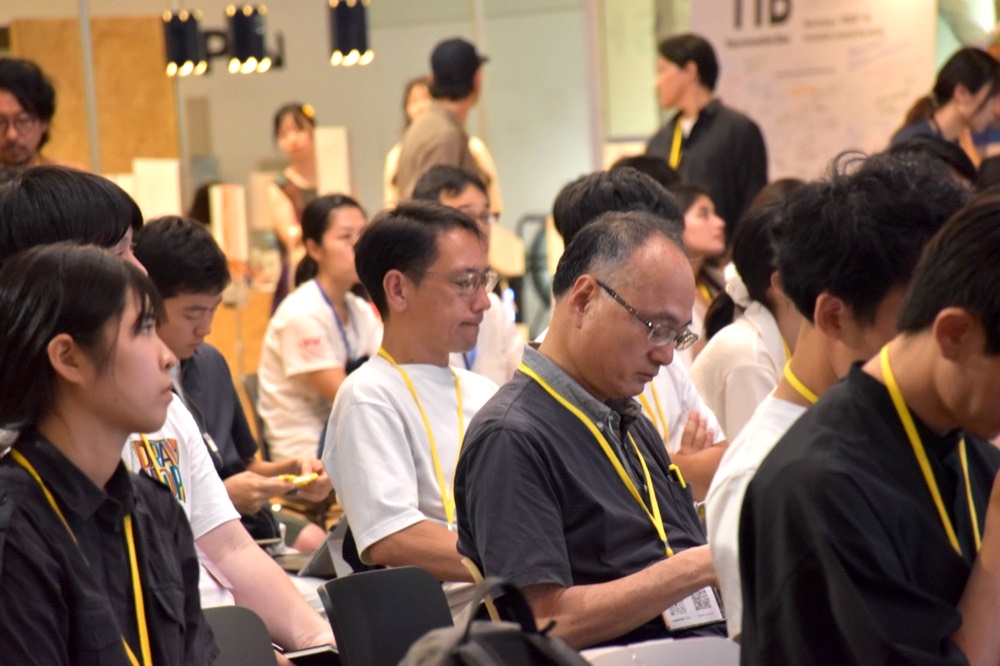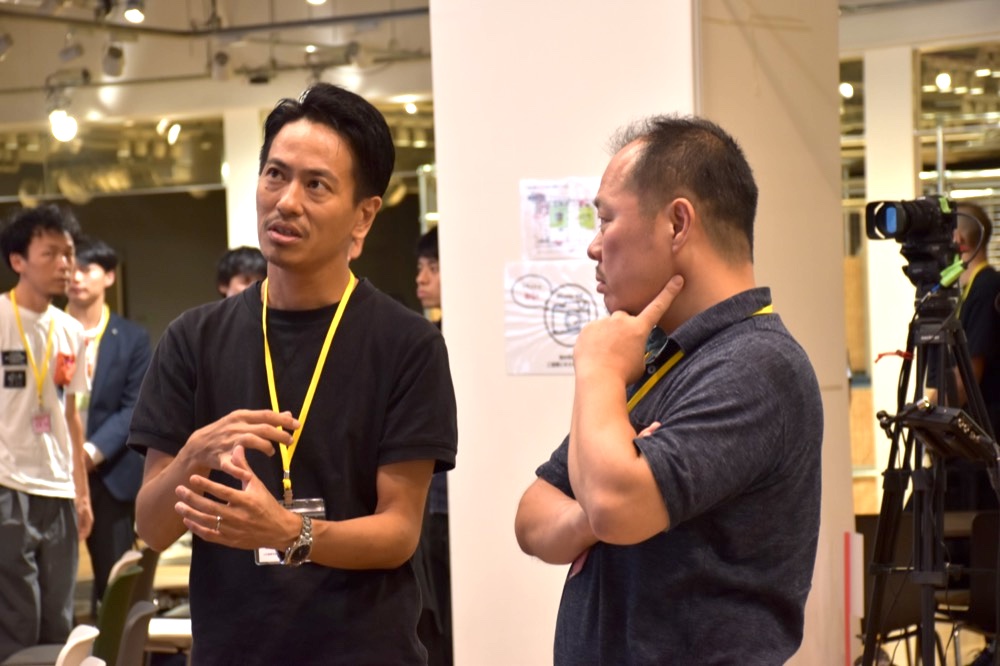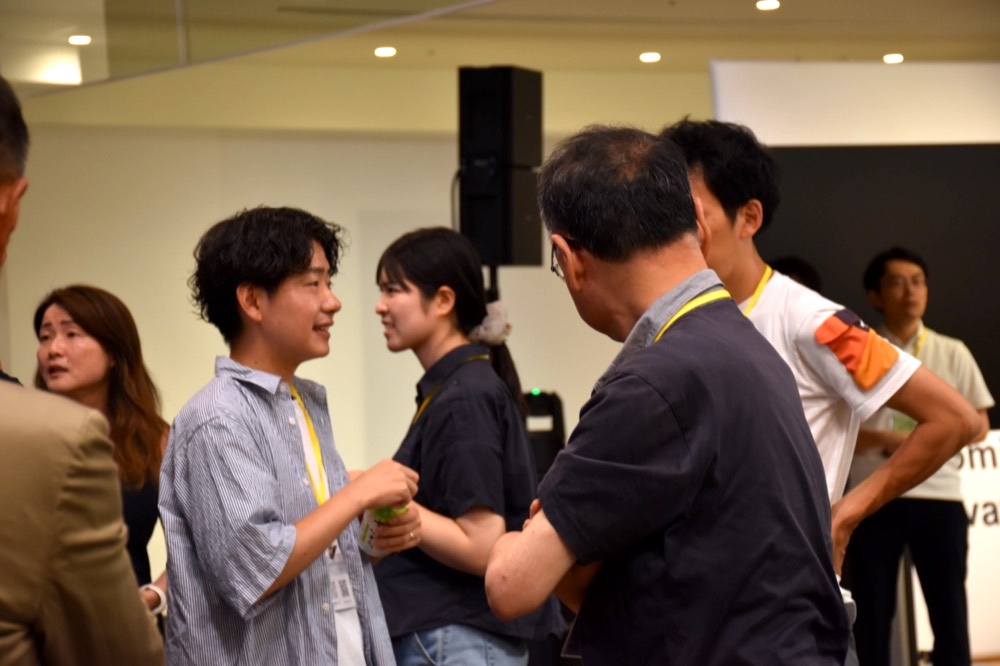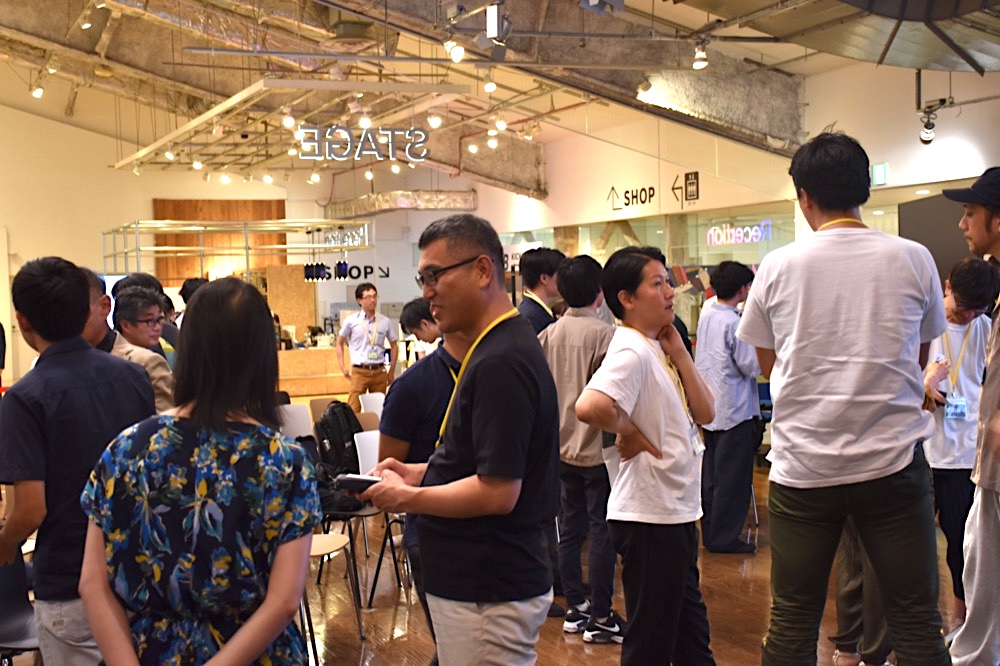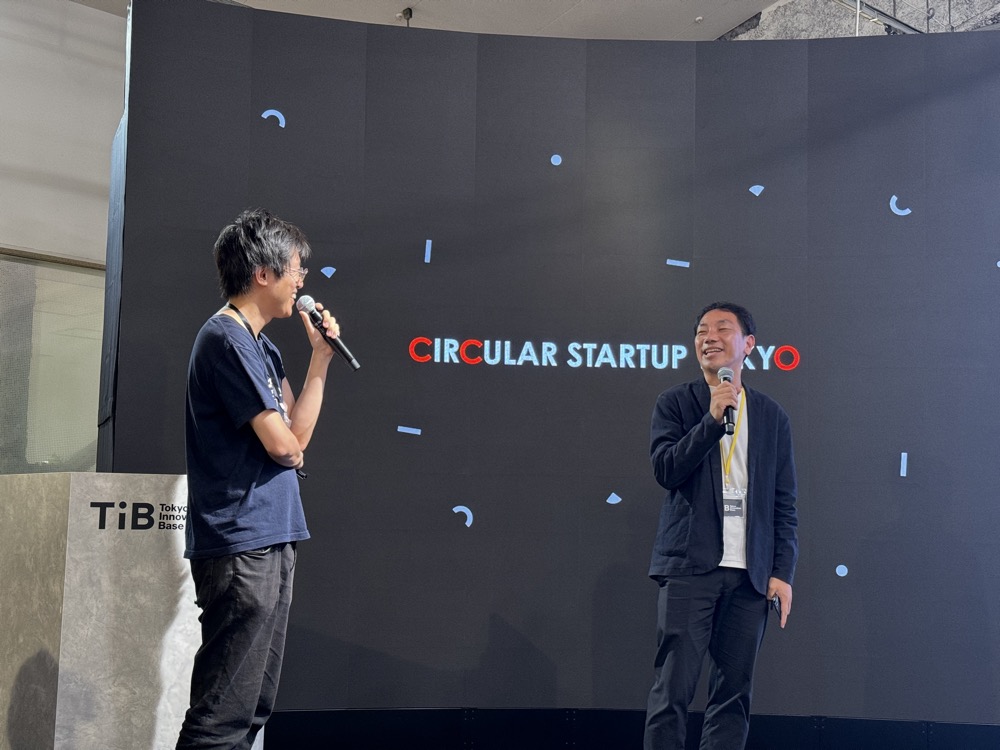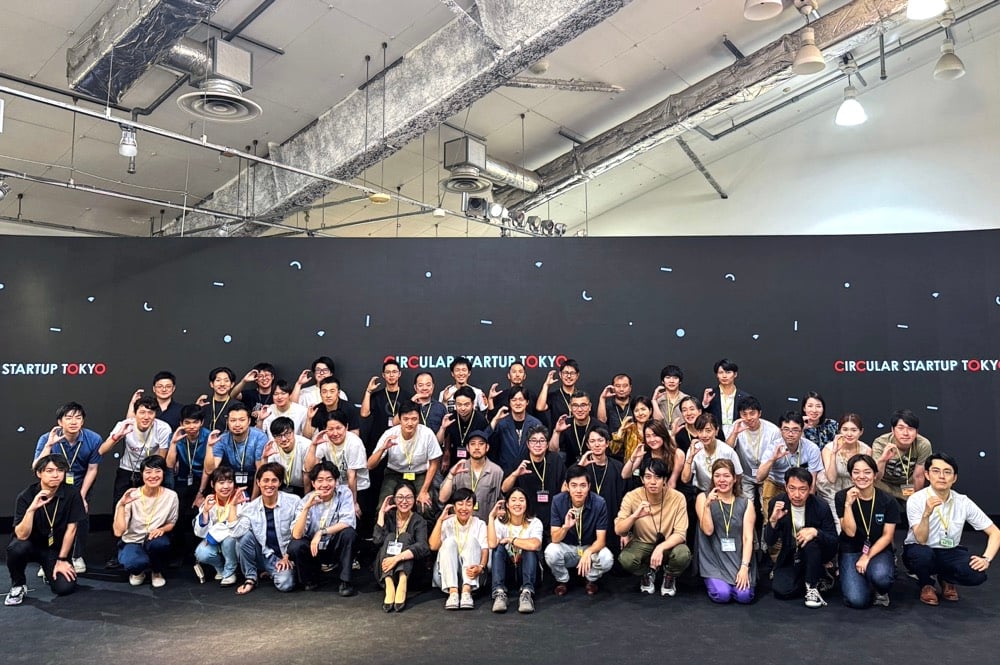CIRCULAR STARTUP TOKYO (CST), a startup support program focused on the circular economy, was jointly organized by Harch Inc., the operator of the circular economy media platform ‘Circular Economy Hub,’ and the Tokyo Metropolitan Government. The program has now reached its final Demo Day.
This five-month incubation program provided participants with mentoring from entrepreneurs and experts in the circular economy, lectures on circular business, and networking opportunities with domestic and international circular economy organizations, major corporations, financial institutions, investors, local governments, and specialists. On the Final Demo Day, around 20 mentors and advisors, as well as representatives from about 10 program partner companies, participated in the event.
Each of the 16 participating teams delivered a seven-minute pitch, followed by feedback from three investors:
- Masafumi Kawai: Advisor, UTokyo IPC
- Hirokazu Kitahara: Partner, Archetype Ventures
- Satoshi Nakamura: Senior Associate, Archetype Ventures
Below are highlights from the pitches and investor feedback.
Participant Pitches
Ryota Namba / EcoLoopers Inc.
EcoLoopers Inc. conducts research, development, and sales of cellulose nanofibers derived from plant-based waste. During CST, the company signed a joint research agreement with Yokohama National University and successfully extracted cellulose nanofibers from floral leaves and stems.
The next challenge is to clearly define applications for the developed material. The company is currently exploring applications in cosmetics, cosmetic packaging, and vegan leather. Additionally, they are considering applications in inks, textiles, and shoe soles—markets with shorter time-to-market.
Investors questioned how the company plans to ensure economic viability within its business model. In response, Namba stated, “We are also exploring ways to incorporate our materials into high-value products that are already sold at premium prices.”

Mayuko Miyagaki & Benoit Mante / HELSINKINOKO
HELSINKINOKO develops and sells home mushroom cultivation kits made from coffee grounds, an underutilized resource. By the end of CST, their revenue had grown by 354% from the previous term, and they had expanded their product reach to six new restaurants.
Future plans include introducing cultivation kits with built-in containers, launching bulk-sized kits for businesses, and expanding distribution through Nordic goods stores targeting Scandinavian lifestyle enthusiasts. By 2030, the company aims to develop a large-scale urban mushroom farm. To achieve this, they plan to take part in pop-up events and identify suppliers for cultivation kit containers.
Investors advised, “Collaborating with businesses offering high-end sustainable coffee could be advantageous,” and “Expanding in the B2B market first before targeting general consumers may help scale demand.”

Yoshinari Takahashi / YTRO DESIGN INSTITUTE LLC
Takahashi, founder of YTRO DESIGN INSTITUTE LLC, leads ‘NULL,’ a project aimed at building a sustainable manufacturing ecosystem by developing paints from waste materials and natural ingredients. During CST, he worked on branding paints made from recycled plastics and soil, promoting employment for people with disabilities, and organizing workshops to create paints using locally sourced materials.
Moving forward, he aims to expand the initiative and foster an ecosystem by strengthening collaborations with local governments and businesses.
Investors advised, “Highlighting the functionality of these paints through a dedicated platform could create new business opportunities,” and “A key factor in ecosystem development is strategically determining which stakeholders to engage first.”
Related Article: Turning the Region’s ‘Nameless Stories’ into Colors—NULL Reimagines the Relationship Between People and Manufacturing Through Paint. (in Japanese)

Mika Yamaoka & Sayuri Yamanashi / Beautiful timeS
Beautiful timeS applies a transition design approach to encourage sustainable food choices for future generations by shaping decision-making and behavioral patterns. As a concrete initiative, the company offers the ‘Friendly Food Map,’ a visual guide to direct sales outlets and distributors specializing in non-standard-sized and small-batch vegetables.
During CST, the company explored the hypothesis that while shifting consumer awareness is difficult, altering behavior first could gradually shape habits and mindset. To test this hypothesis, they developed ‘The Traveling Coloring Book,’ designed to foster connections between people, time, and places—ultimately guiding consumers toward sustainable food choices. They conducted pilot tests with the book and received positive feedback from producers.
Moving forward, they plan to organize networking events connecting producers and consumers, expand the Friendly Food Map by gathering more information on direct sales outlets and distributors, and seek strategic co-creation partners to scale their initiatives. Investors suggested, “By further refining the user persona for the map and enhancing the customer journey, the overall impact could be strengthened.”

Keiichi Fujishiro & Masami Terada / Oki Circular Design Lab
Oki Circular Design Lab is developing the “GREEN ACADEMY” program, designed to cultivate circular leaders who will shape the future alongside local communities.
Conventional environmental education and study tours often struggle to drive meaningful behavioral change. To address this, GREEN ACADEMY emphasizes dialogue-based community building and offers a program that nurtures participant autonomy.
During CST, the lab found the experience invaluable in refining their understanding of their core mission. They also organized a pilot tour in Oki, gathering valuable feedback from participants. They actively engaged mentors, inviting them to serve as lecturers during the tour.
Looking ahead, they aim to broaden their initiatives into community project management and corporate training, ultimately designing a circular economy tour uniquely rooted in Japan. Investors suggested that fostering behavioral change requires engaging both community leaders and key participants.
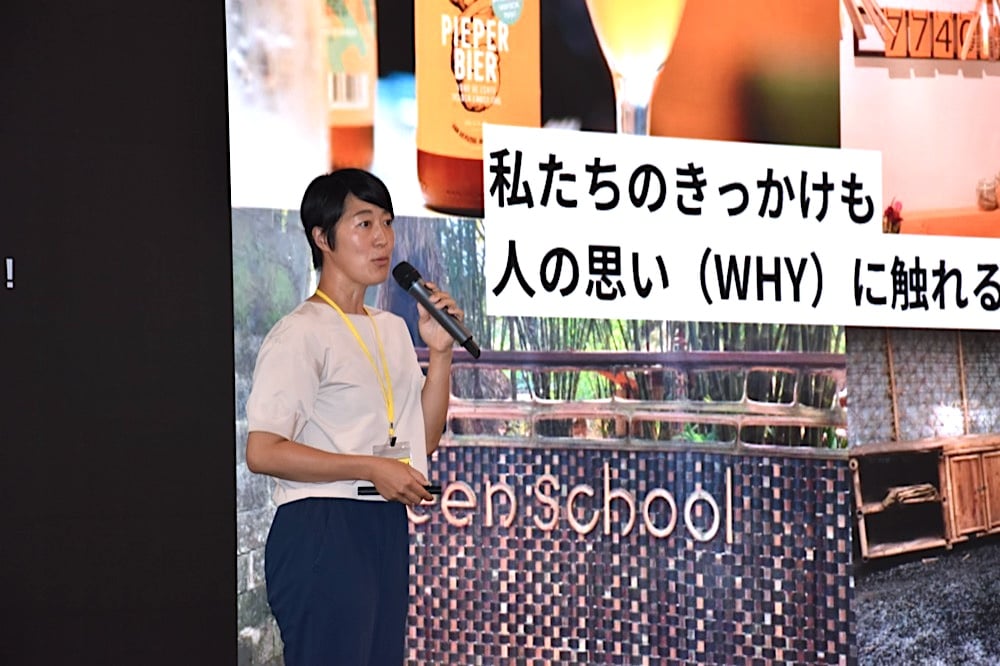
Tomonobu Shigeta / PHI Corporation
PHI Inc. combines environmental education with local resource circulation to cultivate the next generation of leaders in sustainable society. Their goal is to supplement environmental education, which is currently insufficient in public schools due to limited class hours and the heavy workload of teachers. They address this gap by providing hands-on learning content leveraging their expertise in plastic recycling technology.
During CST, PHI was awarded the FY2024 Circular Economy Promotion Project Grant by Saitama Prefecture and initiated collaboration with Fukaya City. Additionally, they were recognized as a J-Startup WEST supporter.
A key milestone for PHI is the implementation of an environmental learning program in public schools by 2027. To accomplish this, they plan to collaborate with private schools, dedicated teachers, education boards, and local governments to conduct pilot tests of their learning content and establish a proven track record in ‘environmental education.’ At the same time, they will assess optimal resource utilization methods, considering both environmental impact and energy efficiency.
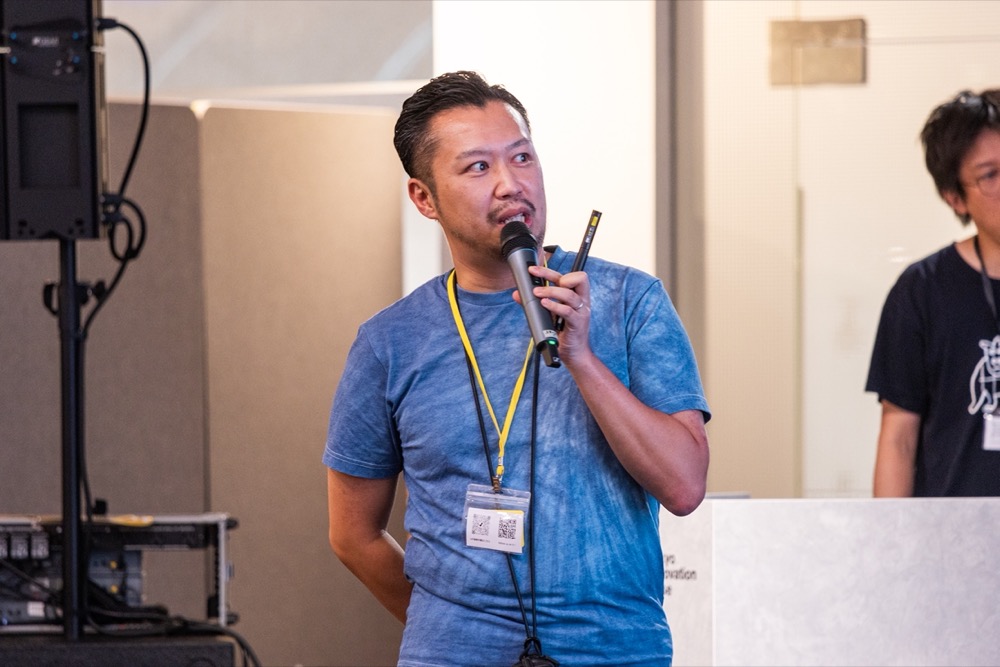
Munehiro Honda / Ecofurni (Mitsubishi Estate Co., Ltd.)
Ecofurni, an in-house venture of Mitsubishi Estate, runs a business that facilitates the sale and collection of reused office furniture for building tenants. They have developed a localized reuse model, ensuring that office furniture from central Tokyo—such as Marunouchi and Ikebukuro—is collected and repurposed within the same area.
During CST, Ecofurni applied for a program dedicated to ‘achieving a circular economy through social implementation.’ The team found significant value in engaging with circular economy experts and tapping into the community for market insights.
Looking ahead, they plan to refine their business milestones through consultations with specialist mentors and increase awareness among tenants about the benefits of furniture reuse. Investors pointed out that simply offering secondhand furniture might not effectively communicate its value. They suggested introducing certifications or other distinguishing features to enhance its appeal. Additionally, they recognized Ecofurni’s potential to play a pivotal role in accelerating the adoption of circular economy practices.

Hiroto Takahashi & Shunsuke Uta / Team FarmBot Cafe (Kajima Corporation)
Team FarmBot Cafe is developing “NAELABO,” a mobile training program that merges technology and nature to support satoyama conservation and urban greening through robotic seedling cultivation.
The team challenges the conventional “scrap and build” approach, which follows a 30-year cycle of demolition and reconstruction. Instead, they advocate for an “unbuild & rebuild” model, promoting long-term sustainability and shifting urban mindsets.
Using the open-source CNC farming project “FarmBot,” the program will guide professionals and elementary school students through the process of growing seedlings in urban areas and reintroducing them to satoyama forests.
During CST, the team acquired a FarmBot and installed a prototype in an office space within an aging building. Moving forward, they plan to refine their training program, assess customer needs, and enhance seedling cultivation efforts. Investors recommended clarifying the strategic pathway that connects their “unbuild & rebuild” concept with Kajima Corporation’s unique capabilities.

Ayaka Ono / RIPPNIS Co.
RIPPNIS seeks to expand the community of creators through “Material Commons,” a manufacturing platform that facilitates material circulation and craftsmanship.
This platform provides DIY furniture kits made from unused resources such as thinned wood, reclaimed wood, and offcuts—materials that are often incinerated as industrial waste due to the lack of a structured supply chain in the timber industry. In doing so, the platform generates financial incentives for material holders and offers furniture designers a digital space to showcase their work.
Looking ahead, RIPPNIS aims to grow its network of early adopters for prototype furniture, companies specializing in material scanning technology, and businesses involved in reclaimed wood and other materials. Investors noted, “A key challenge will be attracting material holders and furniture designers to actively participate in the platform. Establishing a well-structured incentive system will be essential.”
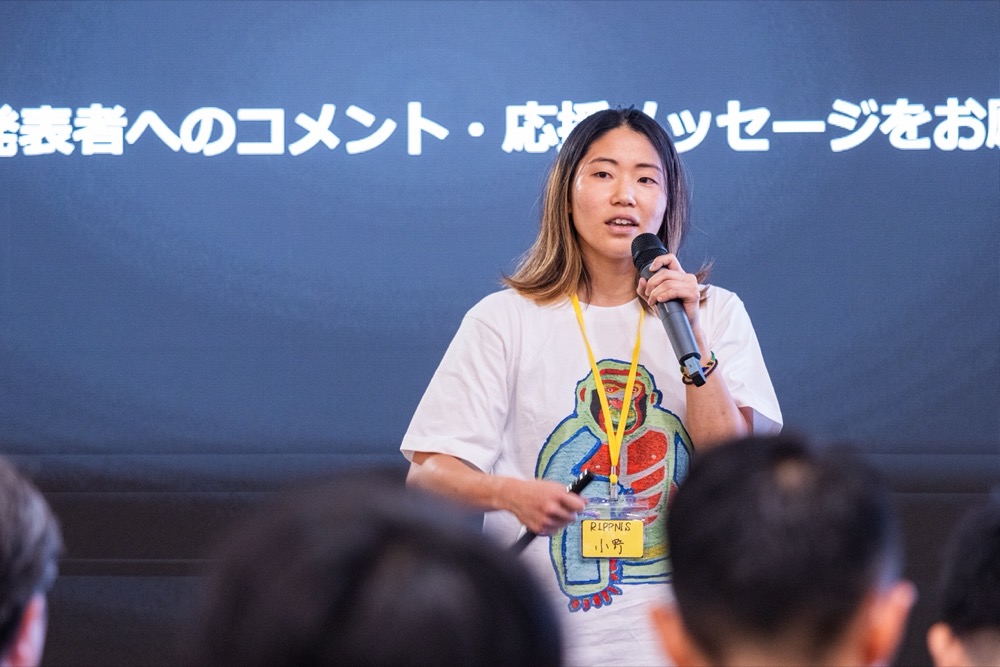
Hiroki Iwasawa / Water and Old House Co.
Water and Old House is tackling river pollution caused by household wastewater. The company is developing advanced septic tanks designed to enhance sludge and synthetic detergent decomposition while optimizing existing septic systems.
By integrating a proprietary microbial group (bio-material) from a partner company, Water and Old House enables what is considered groundbreaking in the water treatment industry—effective sludge decomposition. This innovation not only minimizes environmental impact but also substantially reduces the sludge treatment costs currently shouldered by local governments.
During CST, the company initiated experiments to enhance existing septic tanks and successfully developed a prototype of its next-generation septic tank. Looking ahead, Water and Old House plans to continue experiments to build credibility while pursuing funding for regulatory revisions and additional pilot tests.
Investors advised, “Taking early action on regulatory changes will be crucial,” and “Highlighting the technology’s innovative aspects could facilitate funding from research and development institutions.”
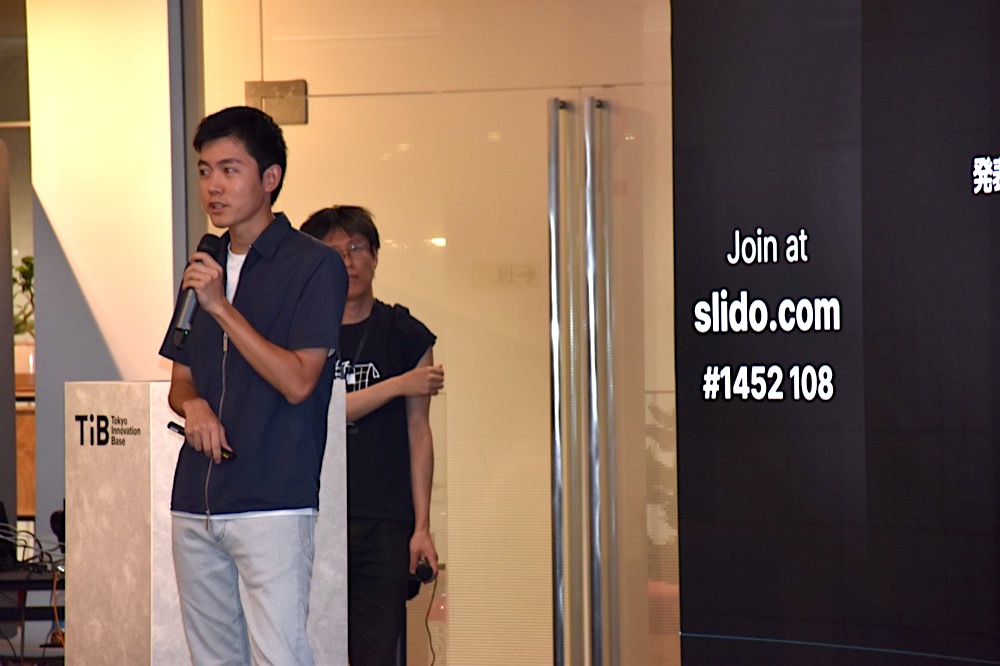
Junya Kubo & Sho Teshima / Heritage Corporation
Heritage operates “CRAFSTO,” an apparel brand that emphasizes environmentally friendly materials and genderless fashion. The company has two core business models:
- A B2C segment that offers clothing and bags made from vegan leather and sustainable materials.
- A B2B segment that develops upcycled products using corporate waste and surplus inventory.
During CST, Heritage collaborated with Bridgestone to create bags using discarded robot components. Additionally, they partnered with trading companies and manufacturers to repurpose surplus fabric into T-shirts.
Looking ahead, the company plans to expand its network of upcycled fabric buyers and develop new upcycled product lines. Investors remarked, “Tackling the tasks that others find cumbersome can become a key strength, and integrating design and technology will help differentiate the brand from competitors.”
Related Article: Heritage, Pursuing Fashion Sustainability, Strengthens B-to-B Merchandise to Create Valuable Upcycled Products (in Japanese)
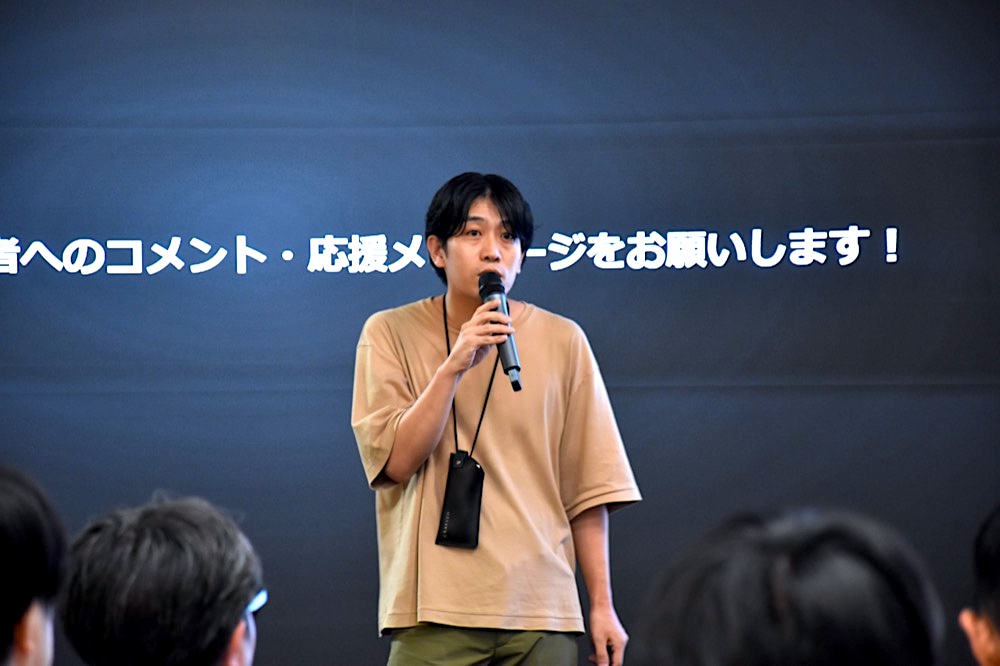
Seiki Fukudome & Tateki Ueno / LiNk LLC
LiNk LLC leverages blockchain technology to tackle the issues of mass disposal and circularity in the fashion industry. The company collaborates across industries and utilizes its technical expertise to enable digital data sharing, adding liquidity to personal assets.
By linking unique product IDs with owner IDs, LiNk records cultural data associated with ownership and transforms it into a new marketing tool—a system currently patent-pending.
Over the past six months, including the CST period, LiNk successfully conducted eight proof-of-concept (PoC) projects, with notable success in blockchain-based trade customs clearance services.
Moving forward, the company will prioritize introducing blockchain in sectors where businesses can gain immediate benefits, such as Digital Product Passports (DPP) and trade customs. Ultimately, LiNk seeks to disrupt the current industry norm—where fashion brands primarily focus on first-time sales—by developing a blockchain-enabled secondary distribution model that allows for sustainable monetization in resale markets.
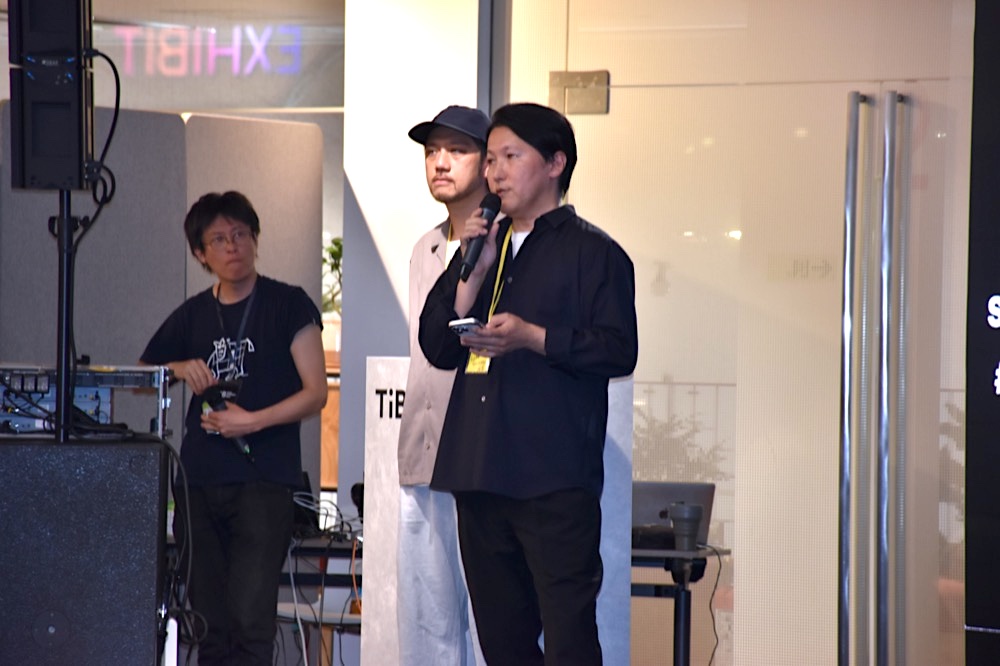
Junji Okawa & Tsuyoshi Kojima / Liberonte Co.
Liberonte operates “spxn,” a circular platform designed to unlock Japan’s estimated 60 trillion yen in hidden consumer assets while tackling challenges in the resale market.
The platform ensures minimum buyback prices for products by allowing users to upload purchase receipts and provides a digital closet that visualizes owned items.
This system minimizes pricing uncertainty and simplifies the resale process, making transactions more seamless.
During CST, Liberonte advanced beta testing and filed a business model patent (as of August 2024).
The company also focused on testing features that monitor product life cycles and improve users’ purchasing and resale experiences.
Looking ahead, Liberonte plans to file for a global patent (PCT) and expedite preparations for its official launch.
They aim to enhance the platform by ensuring that purchased items maintain visible value and can be resold at optimal timing.
Additionally, the company will implement a robust inspection system to reinforce trust and credibility in the resale market.
Investors remarked, “The concept is compelling, but if the minimum buyback price is too broad, differentiation may become challenging. The key will be refining the accuracy of price assessment.”
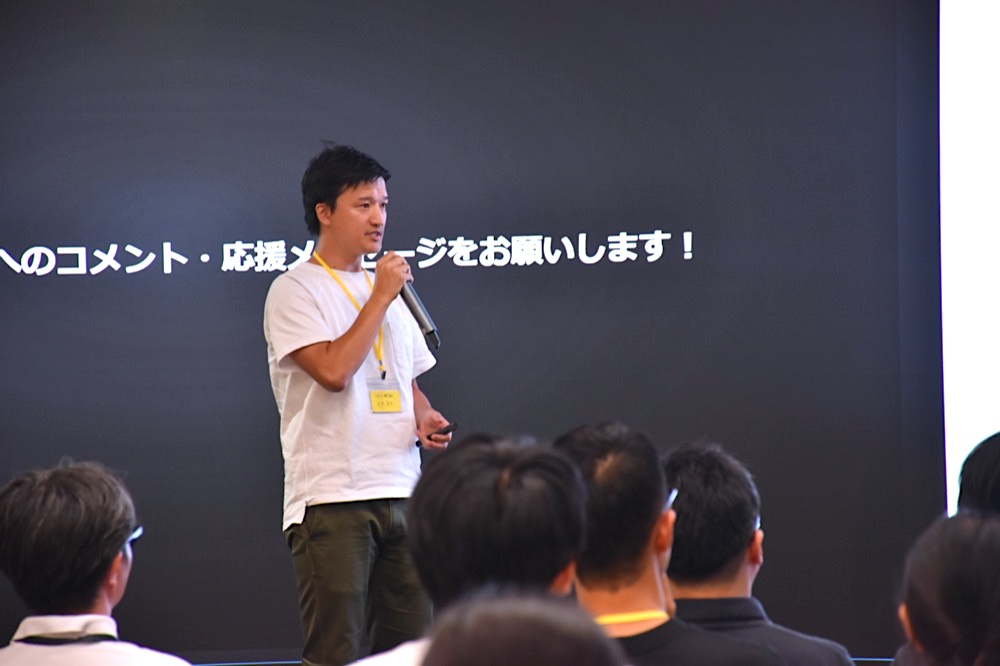
Satoshi Kishi & Yuji Hayashi / naoseru Inc.
Naoseru operates “Reverse Market,” a device recovery platform that determines prices for broken smartphones based on buyer demand. By securing multiple buyers and facilitating demand-driven pricing, the company ensures a 100% purchase rate. This initiative maximizes the value of discarded smartphones and supports the transition to a circular economy.
During the CST period, the company established three collection spots and conducted a proof-of-concept experiment. The successful retrieval and resale of 30 devices demonstrated the effectiveness of their workflow from collection to transaction.
Looking ahead, Naoseru targets a monthly transaction volume of 10 million yen at collection spots and plans to expand both in-store installations and delivery-based collection services. By utilizing a QR code-based system, the company enhances accessibility, allowing any location to function as a collection point. While investors inquired about its competitive edge, Naoseru highlighted its specialized inspection expertise and proprietary pricing system as key differentiators from competitors.
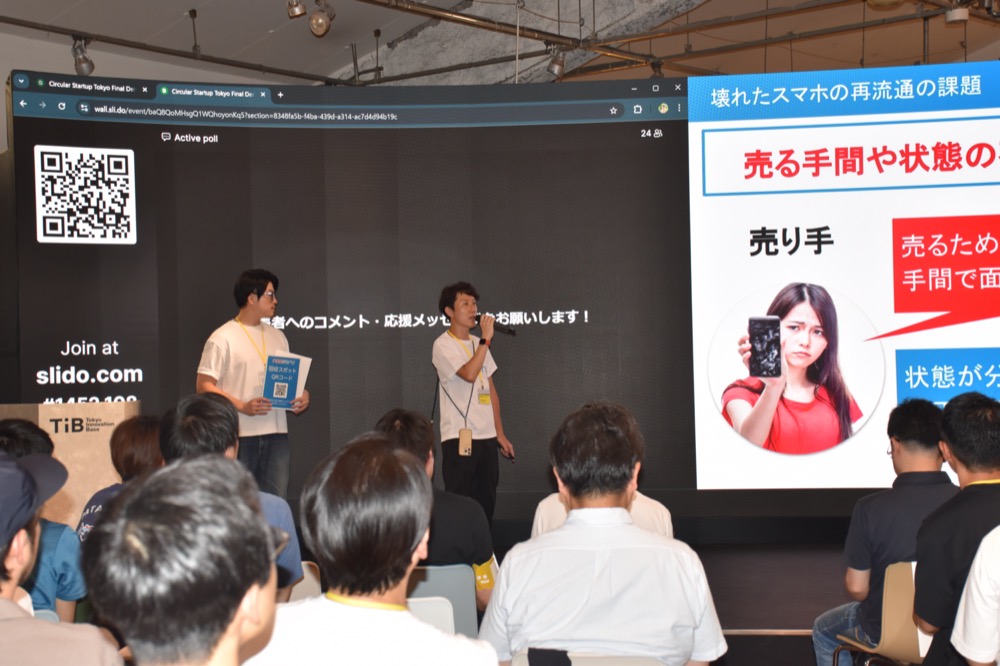
Yutaro Koyanagi / JOYCLE Co., Ltd.
JOYCLE provides small-scale resource recovery devices and data visualization systems that enable waste to be processed on-site without the need for transportation or incineration. Addressing structural challenges in the waste management industry, such as rising maintenance costs and the closure of incinerators, the company has developed “JOYCLE BOARD,” a system designed to track operational performance and environmental impact in real-time. Additionally, JOYCLE manufactures and distributes the compact resource recovery device “JOYCLE BOX” through OEM partnerships.
During the CST period, JOYCLE secured a seed funding commitment of 80 to 100 million yen, including investment from one company. The company also expanded its network of circular economy experts and advisors, laying the groundwork for concrete business collaborations.
Looking ahead, JOYCLE plans to introduce “JOYCLE SHARE,” a mobile waste recovery service for businesses and remote areas where single-unit installations are less feasible. By expanding accessibility to resource recovery, the company aims to build a sustainable waste management framework.
Investors praised the company’s vision, stating, “The decentralized approach of on-site waste processing to cut costs and generate revenue is highly compelling. We look forward to the realization of this circular economy model.”
Related Article: Waste is “not transported, not burned, but recycled.” JOYCLE, a decentralized DX recycling service (in Japanese)
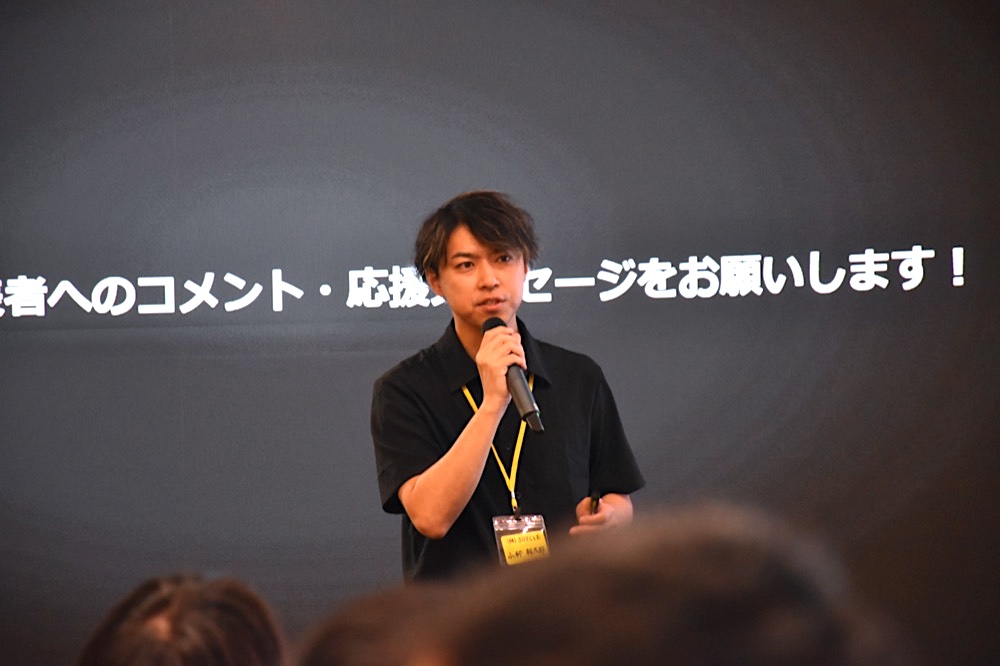
Mentor & Investor Comments
After the pitch session, Hirokazu Kitahara from Archetype Ventures and Yu Kato from Harch Inc. shared their reflections.
Kato: “The circular economy is fundamentally about systemic transformation—the process of building an entirely new industrial and socio-economic system. Let’s compare this to soccer. If you want to sell soccer balls, you first need a culture where people actually want to play soccer. You also need the right infrastructure, such as stadiums, well-trained players, manufacturers for uniforms and shoes, and even rule-makers for the game. Creating a system requires all these roles to function together. Progress may vary across different sectors, but if one area lags behind, it can stall the entire transition. Even if all elements are in place, the business won’t succeed unless consumers are ready to embrace it.
The diverse participants in this program each have a unique role in this transition. While their industries and expertise vary, their collective efforts contribute to shaping this new system. I hope we can continue working together to bring the circular economy to life.”
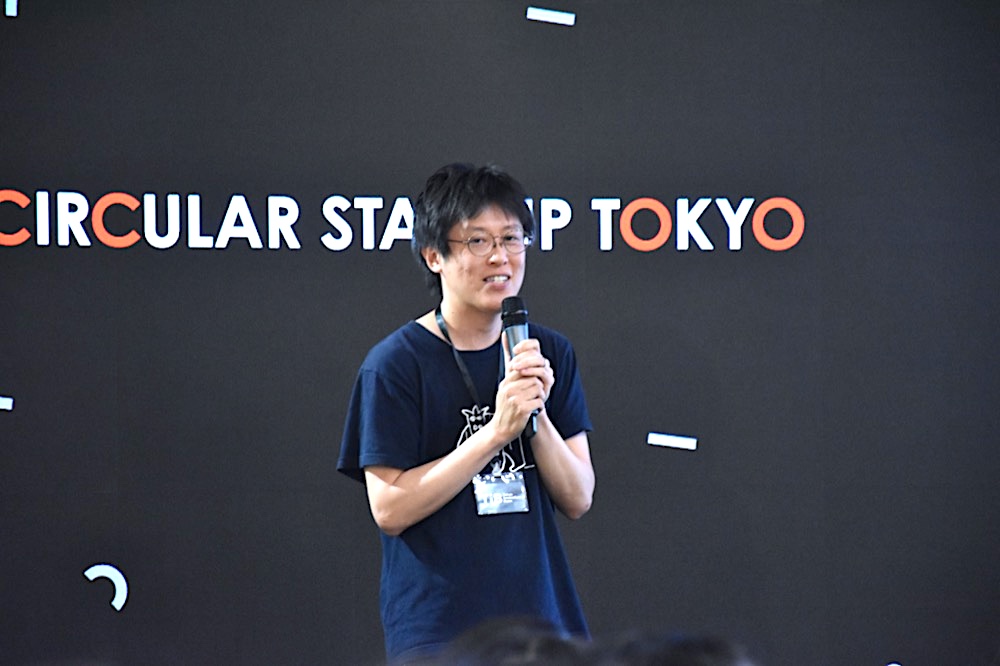
Kitahara: “At the kickoff session, I felt a strong passion from all of you, but I also recognized the need for significant business adjustments to achieve scalability. Through mentoring, many of you have established a solid foundation, but there is always room for improvement. One fundamental question you need to address is: ‘Why us?’ Even if you don’t yet have a dominant competitive edge, your early entry into this field gives you the opportunity to build one. Consider how to leverage the assets you accumulate and turn them into distinct advantages.
Moreover, the pace at which the first cohort scales their businesses will directly impact CST’s overall momentum. As pioneers, I look forward to seeing your continued success.”
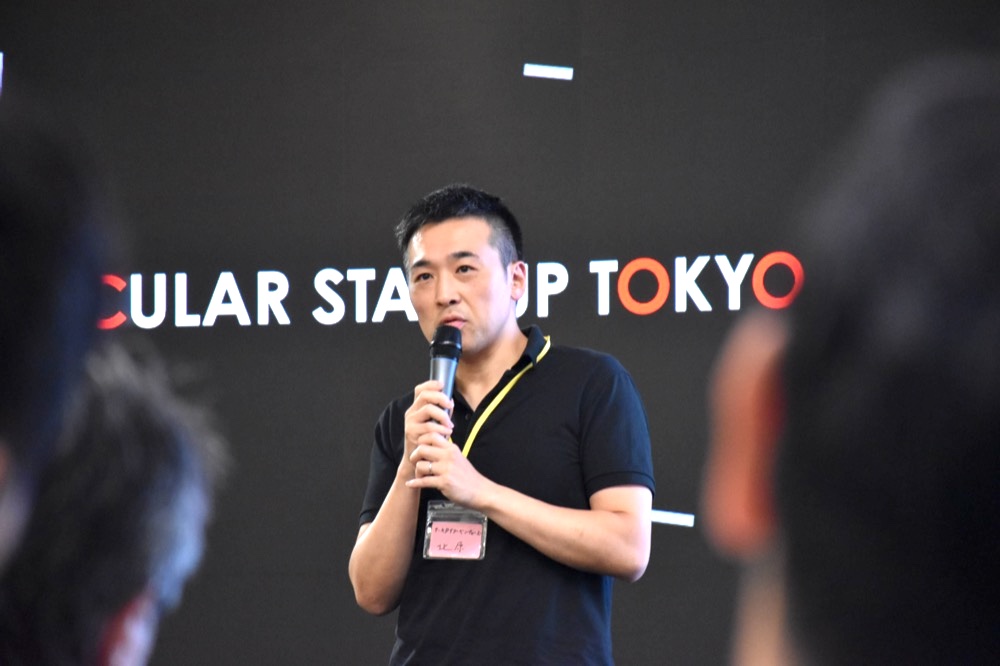
After the pitches, mentors who participated in the CST program shared their insights:
“Transforming the resource circulation and circular economy sector cannot be achieved within existing business frameworks. It requires collaboration among waste management companies, large corporations, and startups like yours. In that sense, everyone is on equal footing—it’s a collective effort.”
“As more companies market themselves as environmentally friendly, it’s crucial to quantify and clearly communicate the specific impact of your products and services. Making these impacts visible will enhance your credibility and maximize your social impact.”
“I hope to see more entrepreneurs successfully generating revenue within the circular economy framework. As it becomes a core part of the economy, the entire system will evolve.”
“The circular economy is a fundamental systemic shift. I encourage you to take a broad perspective. While fully understanding every aspect may be difficult, maintaining a mindset of curiosity and ongoing learning is key.”
Following the event, a networking session was held. Participants engaged with specialist mentors, academic advisors, and partner companies, reflecting on their journeys and discussing future initiatives.
Over the past four months, everyone involved has demonstrated dedication and perseverance, embracing trial and error along the way. It has also been an invaluable learning experience for the organizers. Circular Startup Tokyo will carry on its mission, and we wholeheartedly congratulate the graduates of this first cohort. Looking ahead, we remain committed to advancing the circular economy sector and fostering a thriving ecosystem for future innovation.
